Suppose I have the following web service call using @GET method:
@GET
@Path(value = "/user/{id}")
@Produces(MediaType.APPLICATION_JSON)
public Response getUserCache(@PathParam("id") String id, @Context HttpHeaders headers) throws Exception {
HashMap<String, Object> map = new HashMap<String, Object>();
map.put("id", id);
SqlSession session = ConnectionFactory.getSqlSessionFactory().openSession();
Cre8Mapper mapper = session.getMapper(Cre8Mapper.class);
// slow it down 5 seconds
Thread.sleep(5000);
// get data from database
User user = mapper.getUser(map);
if (user == null) {
return Response.ok().status(Status.NOT_FOUND).build();
} else {
CacheControl cc = new CacheControl();
// save data for 60 seconds
cc.setMaxAge(60);
cc.setPrivate(true);
return Response.ok(gson.toJson(user)).cacheControl(cc).status(Status.OK).build();
}
}
To experiment, I slow down the current thread 5 seconds before fetching data from my database.
When I call my web service using Firefox Poster, within 60 seconds it seemed much faster on the 2nd, 3rd calls and so forth, until it passed 60 seconds.
However, when I paste the URI to a browser (Chrome), it seemed to slow down 5s everytime. And I'm really confused about how caching is actually done with this technique. Here are my questions:
- Does POSTER actually look at the header
max-ageand decide when to fetch the data? - In client side (web, android....), when accessing my web service do I need to check the header and then perform caching manually or the browser already cached the data itself?
- Is there a way to avoid fetching data from the database every time? I guess I would have to store my data in memory somehow, but could it potentially run out of memory?
In this tutorial JAX-RS caching tutorial: How does caching actually work? The first line always fetch the data from the database:
Book myBook = getBookFromDB(id);
So how it is considered cached? Unless the code doesn't execute in top/down order.
@Path("/book/{id}")
@GET
public Response getBook(@PathParam("id") long id, @Context Request request) {
Book myBook = getBookFromDB(id);
CacheControl cc = new CacheControl();
cc.setMaxAge(86400);
EntityTag etag = new EntityTag(Integer.toString(myBook.hashCode()));
ResponseBuilder builder = request.evaluatePreconditions(etag);
// cached resource did change -> serve updated content
if (builder == null){
builder = Response.ok(myBook);
builder.tag(etag);
}
builder.cacheControl(cc);
return builder.build();
}


